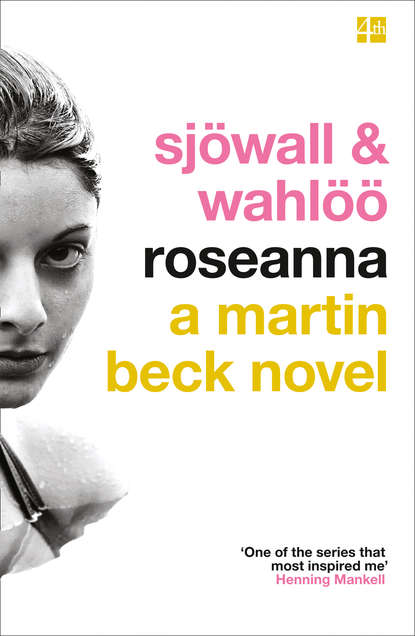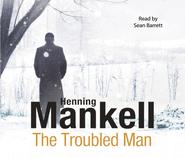По всем вопросам обращайтесь на: info@litportal.ru
(©) 2003-2024.
✖
Roseanna
Автор
Год написания книги
2019
Настройки чтения
Размер шрифта
Высота строк
Поля
She took the coffee pot from the stove and filled his cup. He stopped drumming on the table.
‘Don't you want a sandwich?’ she asked.
He drank carefully with small gulps. He was sitting slightly round-shouldered at the end of the table.
‘You really ought to eat something,’ she insisted.
‘You know I can't eat in the morning.’
‘You ought to in any case,’ she said. ‘Especially you, with your stomach.’
He rubbed his fingers over his cheek and felt some places he'd missed with his razor. He drank some coffee.
‘I can make some toast,’ she suggested.
Five minutes later he placed his cup on the saucer, moved it away without a sound, and looked up at his wife.
She had on a fluffy red bathrobe over a nylon nightgown and she sat with her elbows on the table, supporting her chin with her hands. She was blonde, with fair skin and round, slightly popping eyes. She usually darkened her eyebrows but they had paled during the summer and were now nearly as light as her hair. She was a few years older than he and in spite of the fact that she had gained a good deal of weight in the last few years, the skin on her throat was beginning to sag a little.
She had given up her job in an architect's office when their daughter was born twelve years ago and since then had not thought about working again. When the boy started school, Martin Beck had suggested she look for some part-time work, but she had figured it would hardly pay. Besides, she was comfortable with her own nature and pleased with her role as a housewife.
‘Oh, yes,’ thought Martin Beck and got up. He placed the blue-painted stool under the table quietly and stood by the window looking out at the drizzle.
Down below the parking place and lawn, the highway lay smooth and empty. Not many windows were lit in the apartments on the hill behind the subway station. A few seagulls circled under the low, grey sky. Otherwise there was not another living thing to be seen.
‘Where are you going?’ she said.
‘Motala.’
‘Will you be gone long?’
‘I don't know.’
‘Is it that girl?’
‘Yes.’
‘Do you think you'll be gone long?’
‘I don't know any more about it than you do. Only what I've seen in the newspapers.’
‘Why do you have to take the train?’
‘The others took off yesterday. I wasn't supposed to go along.’
‘They'll drive with you, of course, as usual?’
He took a patient breath and gazed outside. The rain was letting up.
‘Where will you stay?’
‘The City Hotel.’
‘Who will be with you?’
‘Kollberg and Melander. They went yesterday.’
‘By car?’
‘Yes.’
‘And you have to sit and get shaken up on the train?’
‘Yes.’
Behind him he heard her washing the cup with the chip in the rim and the blue roses.
‘I have to pay the electric bill and also Little One's riding lessons this week.’
‘Don't you have enough money for that?’
‘I don't want to take it out of the bank, you know that.’
‘No, of course not.’
He took his wallet out of his inner pocket and looked into it. Took out a 50 crown note, looked at it, put it back and placed the wallet back in his pocket.
‘I hate to draw out money,’ she said. ‘It's the beginning of the end when you start that.’
He took the bill out again, folded it, turned around and laid it on the kitchen table.
‘I've packed your bag, Martin.’
‘Thanks.’
‘Take care of your throat. This is a treacherous time of the year, particularly the evenings.’
‘Yes.’
‘Are you going to take that awful pistol with you?’
‘Yes, no. Yes, no. What's the difference?’ Martin Beck thought to himself.
‘What are you laughing at?’ she asked.
‘Nothing.’
He went into the living room, unlocked a drawer in the secretary and took out the pistol. He put it in his suitcase and locked the drawer again.






